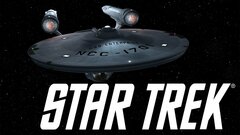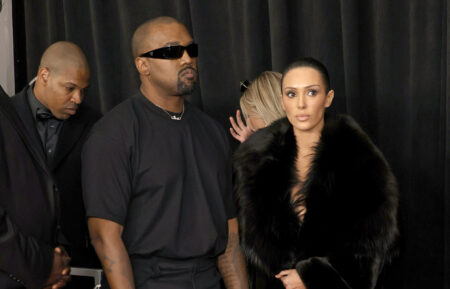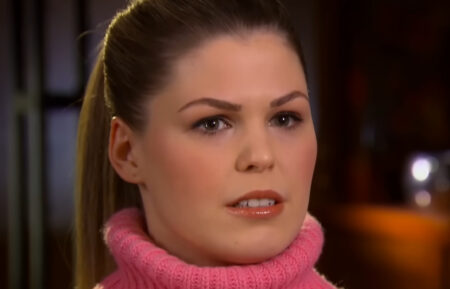George Takei: We Need ‘Star Trek’s Inclusive Message ‘More Than Ever’
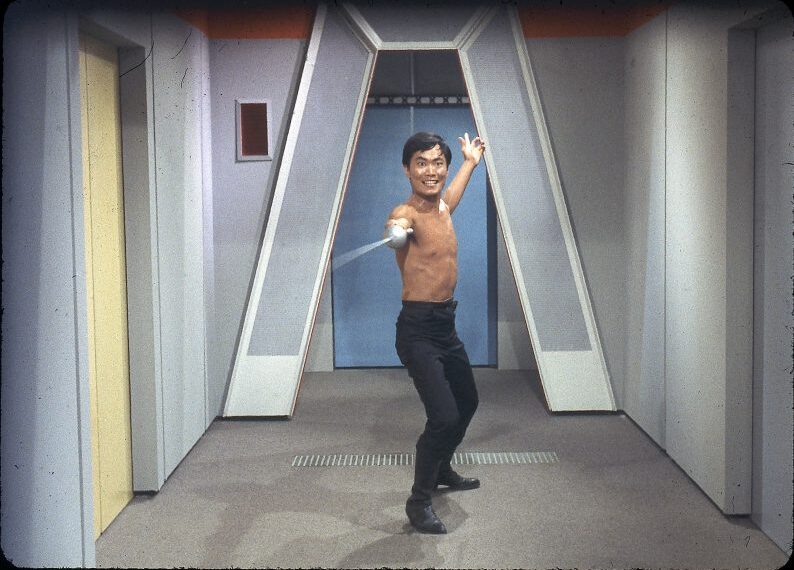
His journey to the role of Lt. Hikaru Sulu—the keen, confident helmsman of the U.S.S. Enterprise—was wildly accidental. Or was it written in the stars? George Takei was not part of Star Trek’s original pilot, “The Cage,” and only got a chance to audition for the second pilot—the one NBC would eventually green-light—because he’d given up hopes of a New York stage career. “Show business, like life, is all about the timing,” says Takei, who had just returned to Los Angeles after being away for two years when he landed a fateful interview with Gene Roddenberry. “At the time, it might have seemed like a huge stroke of luck,” Takei says. “But I now believe it was meant to be.”
RELATED: Star Trek’s George Takei Remembers Leonard Nimoy: ‘He Was Integrity’
Roddenberry thought of the starship Enterprise as a metaphor for starship Earth. “And he cast his show accordingly,” Takei says. “We played a group of characters of various cultures, races, faiths, histories and experiences, all working in concert for the greater good and a more wonderful tomorrow. It was a message we desperately needed back in the turbulent ’60s, a time when the Vietnam War was raging and attack dogs and fire hoses were being used to stop the Civil Rights Movement. And we still need that message today, more than ever.” That said, Takei is and always has been a committed optimist.
“Mankind may be taking three steps forward and two steps back, but progress is being made!” says the actor and social media icon. “That seemingly Utopian world Gene presented to us depicted infinite diversity in infinite combinations, and that is indeed happening in our world…slowly, painfully sometimes, but it’s happening! America has an African-American president, and we soon may have our first woman president. Gene would have been overwhelmed by that.” Takei adds with a laugh, “But I don’t think he would have been surprised.”
RELATED: Leonard Nimoy’s Son Adam on Making For the Love of Spock a Reality
The Japanese-American Takei, who was imprisoned with his family during World War II in an Arkansas internment camp, took great pride in playing Sulu. “It was the first time TV audiences had seen an Asian male as part of a leadership team, speaking without an accent,” he says. “Sulu was not the servant, the villain or the buffoon, which is the way Asian characters were always seen at the time. He was a revolutionary depiction that defied cliché and stereotype. Even today, we still deal with the stereotypical perception that Asians are bad drivers. Well, let me tell you this: Sulu was the best driver in the galaxy!”
Getting “Naked”
Takei loved any opportunity to step away from the helm and strut his stuff, which he did memorably in the fourth episode of the series, “The Naked Time.” The plot centers on a contagion from the planet Psi 2000 that has Enterprise crew members shedding their inhibitions and behaving outrageously—among them a stripped-to-the-waist Sulu, who fancies himself to be a swashbuckling musketeer. He terrorizes his fellow Starfleeters and even declares Uhura his “fair maiden,” until he’s neutralized by Spock’s trusty Vulcan nerve pinch.
“Originally they wanted to put a katana sword in Sulu’s hands,” Takei recalls. “It was technically consistent with my ancestry but, as a boy, I had never played samurai. I played Robin Hood! My parents had taken me to see Errol Flynn in The Adventures of Robin Hood and it swept me away. I had my mother make me a Robin Hood outfit, and my backyard became Sherwood Forest.”
When Takei suggested that Sulu have a fencing foil instead of a samurai sword, he was asked if he knew how to use one. “No real actor would ever admit he doesn’t know how to do something,” Takei says. “So I of course said, ‘Why, yes! It’s my favorite hobby!’ And then I quickly ran to the Yellow Pages and found a fencing teacher!”
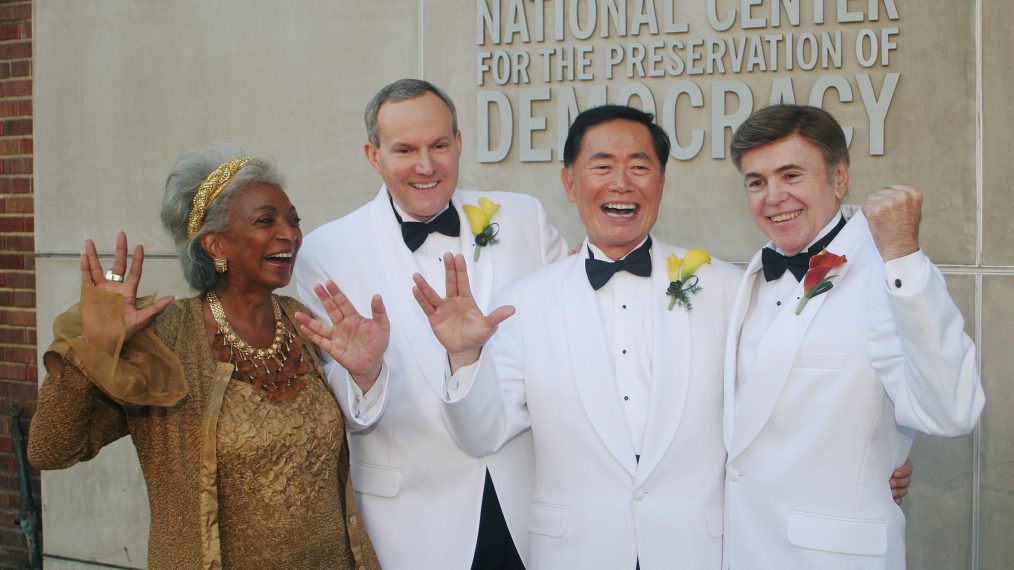
Takei with his husband, Brad Altman (second from left) at their 2008 wedding. Castmates Nichelle Nichols and Walter Koenig were “best woman” and “best man.”
In the Closet
Classic Trek often dealt with issues of prejudice—sometimes subtly, sometimes with a sledgehammer—but gay-themed subject matter was strictly off-limits, even in the anything-goes ’60s. That didn’t stop Takei from trying to do something about it. The actor, who publicly came out in 2005, remembers broaching the touchy topic with Roddenberry himself. “I was heavily closeted at the time, fearing the truth would end my career,” Takei says. “So I sat down with Gene in a private moment and spoke to him as a liberal ‘straight’ man who was concerned that our show—despite its social and political bravery—hadn’t yet tackled homosexuality.”
RELATED: William Shatner on Star Trek‘s 50th, Trekkers, and Being a Pain in the You-Know-Where
Roddenberry, for all his progressiveness, didn’t bite. “He said, ‘I’m sorry, but I can’t do it. I’m already pushing the envelope with Star Trek and I may have pushed it too far,’” Takei recalls. Roddenberry was referring to the notorious interracial kiss between Uhura and Kirk, which many stations in the South had refused to air. “Our ratings hit rock bottom with that episode, and Gene felt he was on a tightrope,” Takei says. “If he slipped, we’d be off the air and then we wouldn’t be able to address any issues at all.”
Did Roddenberry know the real reason Takei was pushing for gay content? “I don’t know whether or not he suspected, but maybe I’m fooling myself,” Takei says. “First of all, he was a very sophisticated man who’d spent many years in the entertainment business. I doubt he was that naive. And lately I’m discovering that a lot of the fans at the Star Trek conventions suspected I was gay many years before I came out. After all, I never married. [Laughs] And I always had a special ‘friend’ with me.”
From TV Guide Magazine
What to Expect From 'The Hunting Party's Love Triangle and Mystery
Manifest alum Melissa Roxburgh and the showrunner of NBC’s Hunting Party tease TV Guide Magazine about what’s ahead for the “government conspiracy that just keeps unfolding” — plus, the series’ “good” love triangle. Read the story now on TV Insider.


